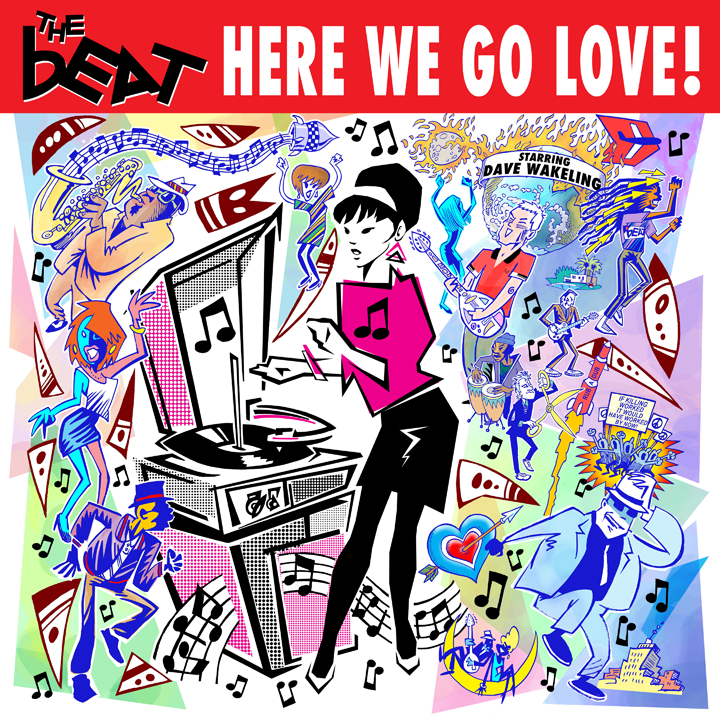Are English Beat And General Public The Same?

The world of music often presents us with fascinating twists and turns, especially when it comes to bands and their histories. One question that frequently arises among fans of the ska and new wave genres is: Are English Beat and General Public the same? While both bands have roots in the same musical era and share some members, they are distinct entities with their own unique identities. This article will explore the origins, evolution, and contributions of both bands, shedding light on their differences and similarities.
Quick Info Table
| Feature | English Beat | General Public |
|---|---|---|
| Formation Year | 1978 | 1983 |
| Key Genres | Ska, Reggae, New Wave | New Wave, Ska, Pop |
| Notable Hits | "Mirror in the Bathroom" | "Tenderness" |
| Original Members | Dave Wakeling, Ranking Roger | Dave Wakeling, Roger Charlery |
| Disbandment | 1983 | 1985 |
| Reunion | 2006 | 1994 |
The Origins of English Beat
Formation and Early Years
English Beat, also known simply as The Beat, emerged in Birmingham, England, in 1978. The band was formed by Dave Wakeling, Ranking Roger, and a group of talented musicians who blended ska, reggae, and punk influences. Their sound quickly garnered attention, leading to a series of hits that defined the late 1970s and early 1980s. Notable tracks like "Mirror in the Bathroom" and "Save It for Later" showcased their upbeat rhythms and socially conscious lyrics.
Musical Style and Impact
The English Beat's music is characterized by its infectious energy and fusion of genres. They were part of the second wave of ska, which sought to modernize the genre for a new audience. Their ability to combine catchy melodies with important social themes resonated with listeners, making them a significant force in the music scene. Unfortunately, the band disbanded in 1983, but their legacy lived on through their music.
The Formation of General Public
A New Direction
After the English Beat disbanded, Dave Wakeling and other members sought new avenues for their creativity. This led to the formation of General Public in 1983. The new band aimed to continue the innovative spirit of the English Beat while exploring a more pop-oriented sound. With Roger Charlery, also known as Ranking Roger, joining the lineup, General Public retained some of the ska influences while venturing into the realm of new wave.
Musical Evolution
General Public's sound evolved from the ska roots of the English Beat, incorporating elements of pop and rock. Their most notable hit, "Tenderness," exemplifies this shift, featuring a catchy chorus and polished production. The band's ability to adapt to the changing musical landscape of the 1980s helped them carve out their niche, even if they never achieved the same level of commercial success as their predecessor.
Key Differences Between the Bands
Lineup and Musical Direction
While both English Beat and General Public share Dave Wakeling as a central figure, their lineups and musical directions differ significantly. The English Beat's original members included Ranking Roger and Everett Morton, among others, who contributed to their distinctive sound. In contrast, General Public featured a different lineup, including Roger Charlery as a key member, and shifted towards a more polished pop sound.
Era and Context
The historical context also separates the two bands. The English Beat thrived during a time of social upheaval and change in the late 1970s and early 1980s. Their music often reflected the political landscape of the time, addressing issues such as inequality and unrest. General Public, emerging in the mid-1980s, focused more on themes of love and relationships, aligning with the pop sensibilities of that era.
Similarities Between the Bands
Shared Members and Continuity
Despite their differences, the bands share a common heritage through their members. Dave Wakeling and Ranking Roger played pivotal roles in both groups, maintaining a thread of continuity through their music. This connection has led many fans to draw parallels between the two bands, often blurring the lines of their identities.
Influence on Ska and New Wave
Both bands significantly influenced the ska and new wave movements. Their ability to blend genres has inspired countless artists and bands that followed. The English Beat's innovative sound paved the way for future ska revivalists, while General Public's pop-infused tracks demonstrated how ska elements could be integrated into mainstream music.
Legacy and Reunion
The Enduring Impact of English Beat
Despite disbanding in 1983, the English Beat's music has continued to resonate with fans. Their songs remain staples on radio stations and playlists that feature 1980s music. In 2006, the band reunited, bringing their energetic performances to a new generation of fans. Their continued relevance speaks to the timeless quality of their music.
General Public's Journey
After disbanding in 1985, General Public also had a reunion, albeit later than the English Beat. In 1994, they returned to the stage, allowing fans to revisit their unique sound. The band's ability to adapt over time has kept their music alive, and they continue to perform occasionally.
Conclusion
In essence, English Beat and General Public are not the same band, but they share a rich history that intertwines their identities. While they emerged from the same musical roots and featured some of the same members, their distinct sounds and eras set them apart. The English Beat's fusion of ska and punk captured the spirit of the late 1970s, while General Public's pop-oriented approach showcased a different facet of the musical landscape in the 1980s.
Their legacies endure, inspiring new generations and reminding us of the power of music to reflect and shape cultural moments. As fans, we celebrate both bands for their contributions to music history and the joy they continue to bring through their timeless hits. Whether you prefer the energetic beats of the English Beat or the catchy melodies of General Public, both bands hold a special place in the hearts of music lovers everywhere.



Comments ()